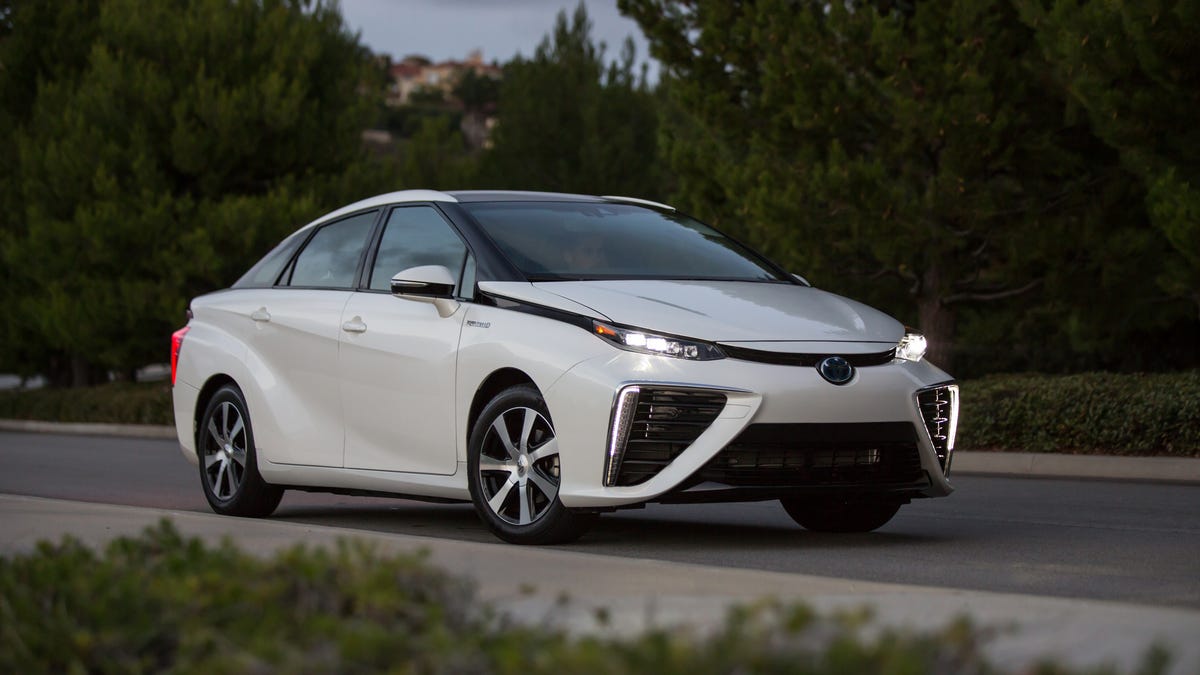Toyota calls back all the Mirais for software bug
It only affects about 2,800 vehicles around the world.

Recalling a whole run of cars can get complicated and expensive, but Toyota 's latest recall manages to do that without raising a massive ruckus.
Toyota has called back every single Mirai hydrogen fuel cell vehicle sold around the world. That may seem like a ton, but bear in mind it's a niche vehicle utilizing an infrastructure that isn't fully fleshed out. Thus, only about 2,840 vehicles are affected.
It should be noted that, in the US, it's not an official recall, but a "customer satisfaction campaign," which has actions and methodologies similar to a recall.
The software reflash won't be able to do anything about that face, though.
The issue relates to the car's powertrain. A unique set of driving conditions -- for example, jamming the accelerator to the floor after driving on a long descent under cruise control -- might cause the fuel cell's boost converter to output voltage higher than the maximum. If that happens, a warning light will come on and the fuel cell system will stop running.
Since a bricked hydrogen car isn't worth a whole lot, Toyota issued the recall. A car that loses its ability to accelerate could also increase the risk of a collision, especially if it happens in traffic.
Toyota will fix the issue with a simple software reflash. This process is free to Mirai owners, and it should only take about 30 minutes at a nearby dealership. After that, everything should be hunky dory.
Update, 7:02 p.m. Eastern: Clarifies this is a customer satisfaction campaign.

